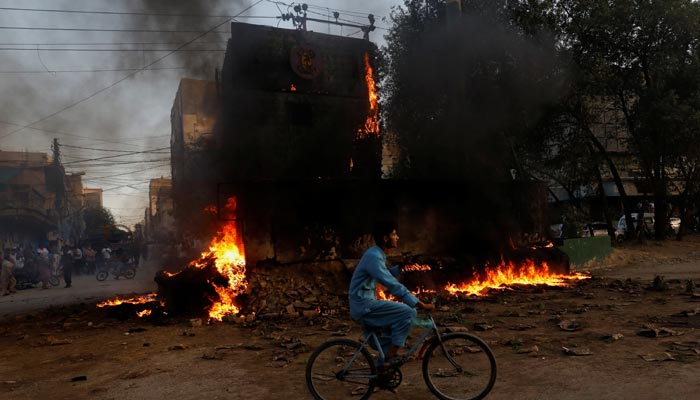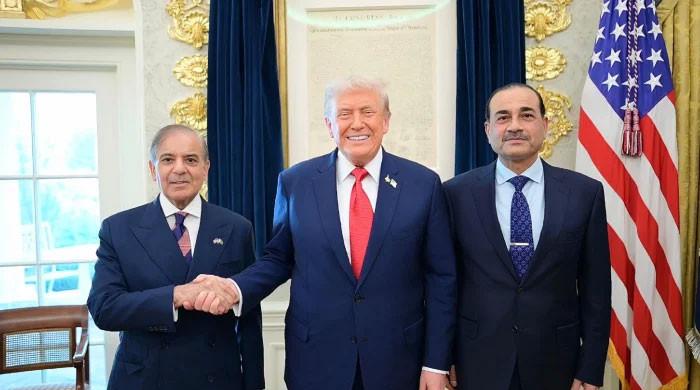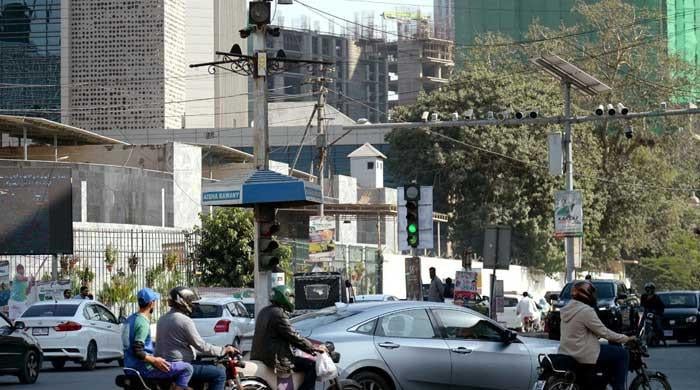'Establishment' of 3 military courts on the cards to prosecute May 9 arsonists
Investigators claim to have gathered substantial evidence against miscreants
May 19, 2023

- Bill for amendment in Pakistan Army Act approved by NA in 2015.
- Civilians seducing forces, violating Official Secret Act to be punished.
- Investigators claim of gathering evidence against miscreants.
ISLAMABAD: To try civilians involved in attacking military installations, torching Jinnah House, and defaming and disgracing the armed forces as part of an international agenda, the establishment is considering establishing three military courts under the Pakistan Army Act and the Official Secret Act, sources revealed to The News.
The sources shared that the military courts established through Chapter 9 of the Pakistan Army Act which was revised via the 21st amendment. The section was revised in 2015 after the Army Public School massacre.
They added that the bill had been approved by the National Assembly of Pakistan on January 6, 2015.
"This amendment allowed the establishment of special military courts to try civilians suspected of terrorism,” Special Public Prosecutor Rizwan Abbasi told The News when asked about the with relevant law that allows the constitution of military courts to try civilians involved in anti-state activities.
He maintained that at least four clauses were changed via the 21st amendment to fulfil the specific obligation of establishing special military courts under the Pakistan Army Act, adding that it was amended in 1967.
Civilians involved in seducing all three forces — the Army, Navy, and Air Force — and, secondly, civilians involved in violating the Official Secret Act would be subject to punishment, he maintained.
The Pakistan Army Act was later amended in 1977 and 1998, Rizwan Abbasi concluded.
“A first information report (FIR) bearing 314/20 was lodged with the Shalimar police station under Section 331 of the Pakistan Penal Code (PPC) on the complaint of Ray Tanvir Ahmad, son of Ray Bashir Ahmad, a resident of Chaklala, Rawalpindi, on October 1, 2020, saying that one, Hasan Askari, son of Syed Zafar Mehdi Askari, a resident of F-11/4, Islamabad, has written letters to different senior members of the armed forces of Pakistan, wherein he has attempted to seduce and entice them from their duties and create hatred, contempt, disaffection, and disloyalty by implying collective insubordination and resistance against the army chain of command."
The FIR also maintained that Hasan also used illegal remarks against the senior military leadership and command.
"The acts of the accused person indicate his close association or support by anti-state elements to create anarchy or mutiny in the Army,” the sources said, pointing to the FIR as an example of civilians involved in attacking military installations.
The investigators claim to have gathered substantial evidence against the miscreants using technologies such as geofencing, which helped identify their identities and locations at various insurgency-prone venues.
This indicated that specific radical gangs had been assigned targets by the party leadership. Furthermore, they apprehended the miscreants and identified them through video footage of the PTI leadership inciting the attackers.
A separate list of men and women involved in anti-state activities has been forwarded to the JAG (judge advocate general) Branch, working directly under the Directorate of Army, to determine the legal way of their trial in special military courts, the sources maintained and added that the miscreants involved in infringing the Official Secret Act would be taken to the courts of law within the next 10 days.









